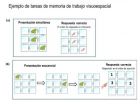(Press-News.org) The high cost of medication, stigmatisation and poor acceptance of their condition are causing young adults to take a dangerous approach to managing their asthma, according to new research published today in the journal BMJ Open.
In the UK 5.4 million people are currently receiving treatment for asthma: 1.1 million children (one in 11) and 4.3 million adults (one in 12). There were 1,131 deaths from asthma in the UK in 2009. Most asthma deaths are preventable.
Despite the availability of effective treatments, poor asthma control is common.
The overuse of short-acting bronchodilators ("quick-acting" inhalers, usually blue, which relieve acute asthma symptoms) is a marker of poor asthma control and is linked to increased risk of hospital admission and death from asthma.
Regular use of low dose anti-inflammatory corticosteroid inhalers (preventer inhalers, usually brown) are fundamental to successfully controlling asthma, and preventing asthma symptoms.
In this study, led by Queen Mary, University of London, researchers looked at why young adults (20yrs -32yrs) overuse short-acting bronchodilators. The researchers interviewed 21 young adults from the same urban general practice who were classed as either high users (12) or low users (nine) of short-acting bronchodilators as judged by their number of prescriptions. They found:
Cost was seen as a major disincentive to obtaining preventive medication
High-users were more likely to express anger or resentment at their condition
High-users often reported poor control of their asthma symptoms
Stigma was common, with inhalers described as something "to hide in a bag"
Chris Griffiths, Professor of Primary Care at Queen Mary, who led the research said: "Relying on short-acting bronchodilators – 'my blue (inhaler) takes a battering' as one patient put it – is not a safe way to manage asthma and individuals taking this approach are putting their lives and health at risk.
"Our findings suggest a number of possible strategies to support people to manage their condition better. Providing free asthma medication, particularly to those on low incomes, could help boost the numbers using preventive medication. Better education, particularly at the time of diagnosis, could help people accept and adapt to their illness, while reducing stigmatisation might mean people feel more comfortable about using their inhalers in public."
Emily Humphreys, Head of Policy and Public Affairs at Asthma UK, said: "Over-reliance on reliever asthma medicines instead of preventers puts people at greater risk of a potentially fatal asthma attack, so this study is really important in highlighting some of the reasons behind it.
"It's telling that young people felt the costs of prescriptions were such a major barrier to taking the right medicines at the right time and we're keen to see the introduction of free prescriptions for long-term conditions so that young people with asthma would no longer face the dilemma of which medicine to buy when they can only afford one.
"In the meantime it is absolutely crucial that healthcare professionals explain how medicines work, particularly when younger people are diagnosed with asthma, to ensure that they understand how to manage their condition."
The paper is available online at here
### END
Cost of medication and stigma leading asthma sufferers to risk health
2013-02-20
ELSE PRESS RELEASES FROM THIS DATE:
Simple measures to promote sleep can reduce delirium in intensive care patients
2013-02-20
A hospital is not the best place to get a good night's sleep, especially in a noisy intensive care unit. It's a cause for concern because studies have shown that a lack of sleep can cause patients to experience delirium—an altered mental state that may delay their recovery and lead to short and long-term confusion and memory problems.
A team of doctors, nurses, psychologists and pharmacists in the medical intensive care unit (MICU) at The Johns Hopkins Hospital implemented a project to see if by taking simple steps to reduce nighttime noise, light,and staff interruptions, ...
Tool boosts success of online collaborations by redistributing the burdens of leadership
2013-02-20
PITTSBURGH—The Web makes it possible for lots of people to collaborate on projects, but it doesn't make it easy to lead them. A Carnegie Mellon University researcher has developed a new tool that helps leaders see complex, collaborative projects through to completion by redistributing leadership responsibilities.
The tool, called Pipeline, makes it easier to assign, critique and track the progress of individual tasks within a project and makes it easy for leaders to delegate responsibility to others. As evidenced by a case study in which Pipeline was used to manage the ...
First signals from brain nerve cells with ultrathin nanowires
2013-02-20
Electrodes operated into the brain are today used in research and to treat diseases such as Parkinson's. However, their use has been limited by their size. At Lund University in Sweden, researchers have, for the first time, succeeded in implanting an ultrathin nanowire-based electrode and capturing signals from the nerve cells in the brain of a laboratory animal.
The researchers work at Lund University's Neuronano Research Centre in an interdisciplinary collaboration between experts in subjects including neurophysiology, biomaterials, electrical measurements and nanotechnology. ...
Researchers decipher modus operandi of potential Alzheimer's drug
2013-02-20
This press release is available in German.
The study published in "Angewandte Chemie" might help to work out strategies for developing potential drugs. As the team of scientist including Markus Zweckstetter and Eckhard Mandelkow report, methylene blue inactivates molecular residues that promote the bonding of tau proteins.
Methylene blue is a multi-talented substance with a long history. The synthetic compound was first produced in 1876, and since then has served not only as a blue dye, but also as a medical drug – for example to treat malaria and prevent urinary ...
Bilingual children have a better 'working memory' than monolingual children
2013-02-20
A study conducted at the University of Granada and the University of York in Toronto, Canada, has revealed that bilingual children develop a better working memory –which holds, processes and updates information over short periods of time– than monolingual children. The working memory plays a major role in the execution of a wide range of activities, such as mental calculation (since we have to remember numbers and operate with them) or reading comprehension (given that it requires associating the successive concepts in a text).
The objective of this study –which was published ...
Healthy rivalry could boost sport and business performance
2013-02-20
New research shows that people can recover from poor performance when rivals comment on their failures. The research, to be published in the Journal of Experimental Social Psychology, shows that while criticism from team members sends individuals into downward performance spirals, external criticism can be a trigger that boosts performance as people try to prove the outsiders wrong. The research carried out by the University of Exeter, Amherst College and the University of Stirling offers a method of improving performance following setbacks and can be applied both in the ...
New taxonomy of platinum nanoclusters
2013-02-20
Physicists have gained new insights into the inner intricacies of the structural variations of metallic nanoclusters. This work by Luca Pavan, Cono Di Paola and Francesca Baletto from King's College London, UK, is about to be published in EPJ D. It takes us one step closer to tailoring on-demand characteristics of metallic nanoparticles. Indeed, the geometric structure of these nanoclusters influences their chemical and physical properties, which differ from those of individual molecules and of bulk metals.
The problem resides in the difficulty in evaluating the optimal ...
Molecular basis identified for tissue specific immune regulation in the eye and kidney
2013-02-20
Both AMD, which affects around 50 million people worldwide, and aHUS, a rare kidney disease that affects children, are associated with incorrectly controlled immune systems. A protein called complement factor H (CFH) is responsible for regulating part of our immune system called the complement cascade. Genetic alterations in CFH have been shown to increase a person's risk of developing either AMD or aHUS, but rarely both. Why this is the case has never been explained until now.
Researchers from the Wellcome Trust Centre for Cell Matrix Research and the Ophthalmology and ...
The nano-channel that disentangles knots
2013-02-20
The DNA, just like hair, has a tendency to become knotted, thus it may be useful to disentangle it.
Unfortunately, it is not possible to "actively" choose at random (or better, in one solution) the filaments with the desired features, and this is why scientists adopt "passive" solutions like, for instance, having the DNA pass through nano-pores or nano-channels.
"Channels and filaments have physical features we may exploit to selectively let a type of molecule pass through" explains Micheletti. "You can have more or less entangled filaments and featuring knots of different ...
New technology in the magnetic cooling of chips
2013-02-20
Luis Hueso, the CICnanoGUNE researcher, together with researchers from the University of Cambridge, among others, has developed a new technology in the magnetic cooling of chips based on the straining of materials. Compared with the current technologies, this advance enables the impact on the environment to be lessened. The work has been published recently in the prestigious journal Nature Materials.
Current cooling systems, be they refrigerators, freezers or air conditioning units, make use of the compression and expansion of a gas. When the gas is compressed, it changes ...


